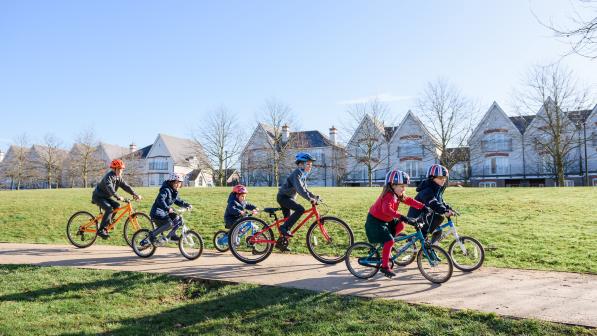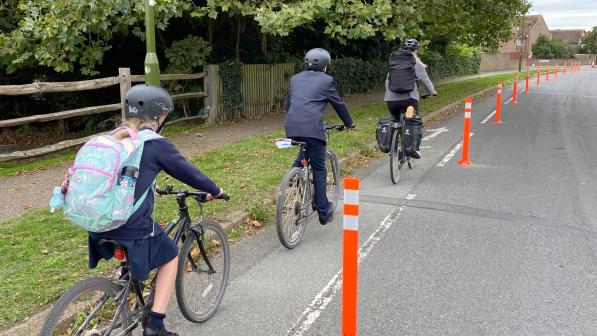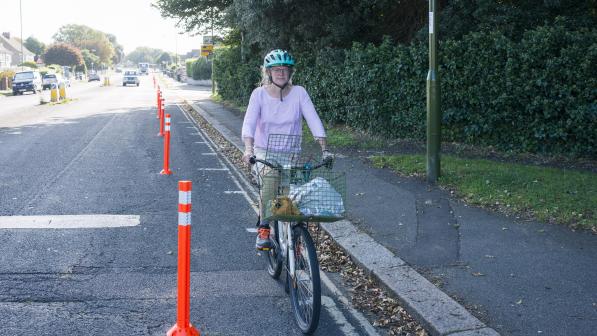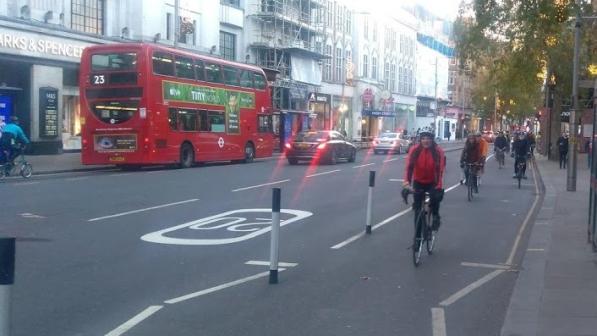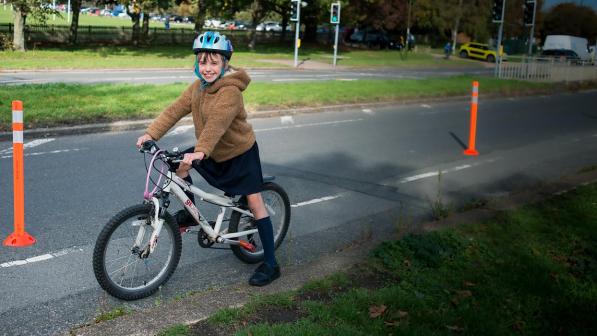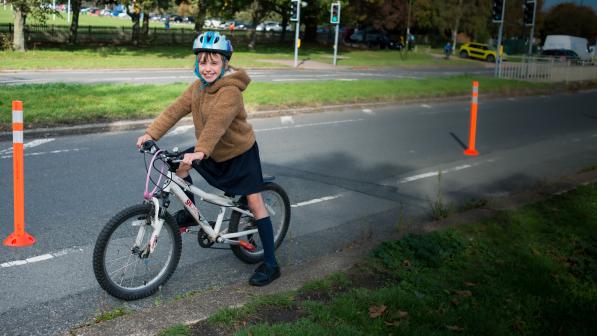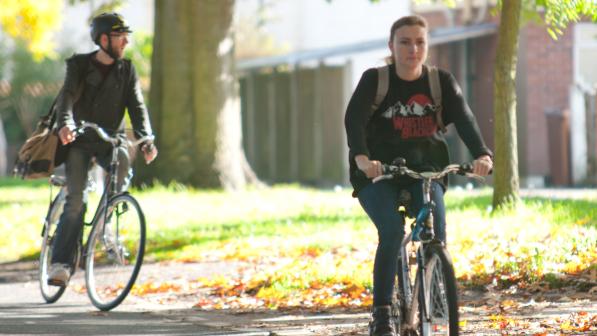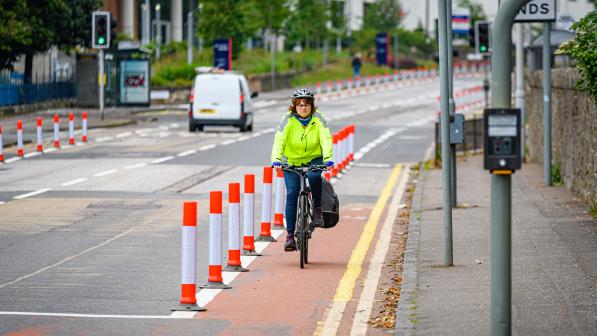Back to school – but not by bike in Shoreham

On Monday morning, many children across England will be returning to school. Arrangements and timings for returning to school differ in Scotland, Wales and Northern Ireland, but there’s a common theme: lots of kids are going back to school, and it would better if they were doing so actively rather than being ferried there and back by car.
Over the last year, whenever schools have been open for on-site learning, Department for Education (DfE) advice in England has been to encourage pupils and staff to walk, cycle or scoot to school if they can and if they live a short distance (two miles or less) from their school.
The average trip length to school in England was 2.6 miles in 2019. However, that takes into account the longer journeys taken variously by some children in rural areas and others with special needs, to get to either their nearest or most appropriate school. Many children in more urban areas will be within that two mile radius of their place of learning.
Cycle if you can
This week, in advance of the 8 March return, the DfE and Department for Transport (DfT) have issued further back to school travel guidance with the "walk, cycle or scoot if you can" message, but what if you can’t, or your parent/guardian doesn’t think you can do so safely?
It’s great to encourage people to ride a bike, but it’s not enough on its own. To enable more people to do it you have to ask why they don’t, or won’t, and try and remove the barriers that put them off. Then you’ve a chance to change their travel behaviour.
Nothing I’ve written so far is either controversial or new, so it’s frankly stunning that whilst national government is telling parents to get their kids to cycle to school, at least one local council is doing everything it can to make that difficult for them.
I’m talking about Shoreham, and the council that puts on-street parking above the safety of children wanting to cycle to school.
More kids cycling – let’s take the cycle lane away
In case you missed the story, last week Cycling UK issued court proceedings against West Sussex County Council, namely a judicial review to challenge the council’s decision to remove a temporary cycle lane along Upper Shoreham Road in Shoreham.
Our frequently asked questions page outlines what the case is about and why we’re doing this, but in a nutshell: the council installed a temporary cycle lane and then decided five weeks later to remove it. That was despite their own report showing a significant increase in the number of people cycling along the road whilst the lane was in operation, and that this was particularly popular and beneficial for children and their parents/guardians cycling to local schools.
The cycle lane provided access to two secondary schools and three primary schools, and was used 30,000 times in five weeks. But next Monday, if your child wants to go back to one of those schools by bike, they’ll have to share the road with motor traffic
Duncan Dollimore, head of campaigns & advocacy, Cycling UK
And here’s where we get back to schools.
The cycle lane provided access to two secondary schools and three primary schools, and was used 30,000 times in five weeks. But next Monday, if your child wants to go back to one of those schools by bike, they’ll have to share the road with motor traffic, and it’s worth looking at what’s happened with that traffic since the cycle lane was removed.
Can’t you just share the road?
West Sussex County Council’s own data on the volume and speed of traffic on Upper Shoreham Road tells its own tale.
During October, November and December 2020, when the lane was in place, around 1,200 cars each week were detected exceeding 35 mph on Upper Shoreham Road’s eastbound lane. It would be reasonable to assume that a similar number were speeding westbound, but we don’t have the data to confirm that. That level of speeding might well put many people off cycling along the road, but at least back then there was some level of separation from the motor traffic for anyone choosing to cycle.
The lane was removed by the council in January, and since then levels of speeding have steadily climbed, with a more or less weekly increase, so that by the week of 22 February this year, 2,117 eastbound cars were detected exceeding 35 mph, and as a proportion of all cars travelling along Upper Shoreham Road, around twice as many people are now driving at speeds of 35 mph or more on this 30 mph road than they were when the cycle lane was in place.
What can the council do to make cycling difficult?
It would be strange indeed if West Sussex County Council didn’t say they agreed with the Government’s messaging on cycling to school if you can, but the important question is: what are they doing to enable children to do that?
The answer in Shoreham is that they are doing everything they can to prevent it, by removing the very cycle lane which meant parents/guardians could say their child can cycle to school.
Instead, on Monday, many parents in Shoreham won’t be asking themselves whether their child can cycle to school, they’ll be asking why they’d let their child share the busy road with speeding drivers.
Warm words are easy
Warm words on active travel and cycling to school are easy. Doing things to make it happen is harder.
But doing things to actually make it harder, by removing something which turned "can cycle" into "will cycle", is mind-numbingly stupid.
We also think it’s unlawful, which is why Cycling UK has issued court proceedings.
We can only pursue cases like this with your support for our Cyclists’ Defence Fund, so please contribute if you want us to keep fighting not just for people who already cycle, but those who can’t or won’t - but might, if councils like West Sussex didn’t make irrational decisions.
